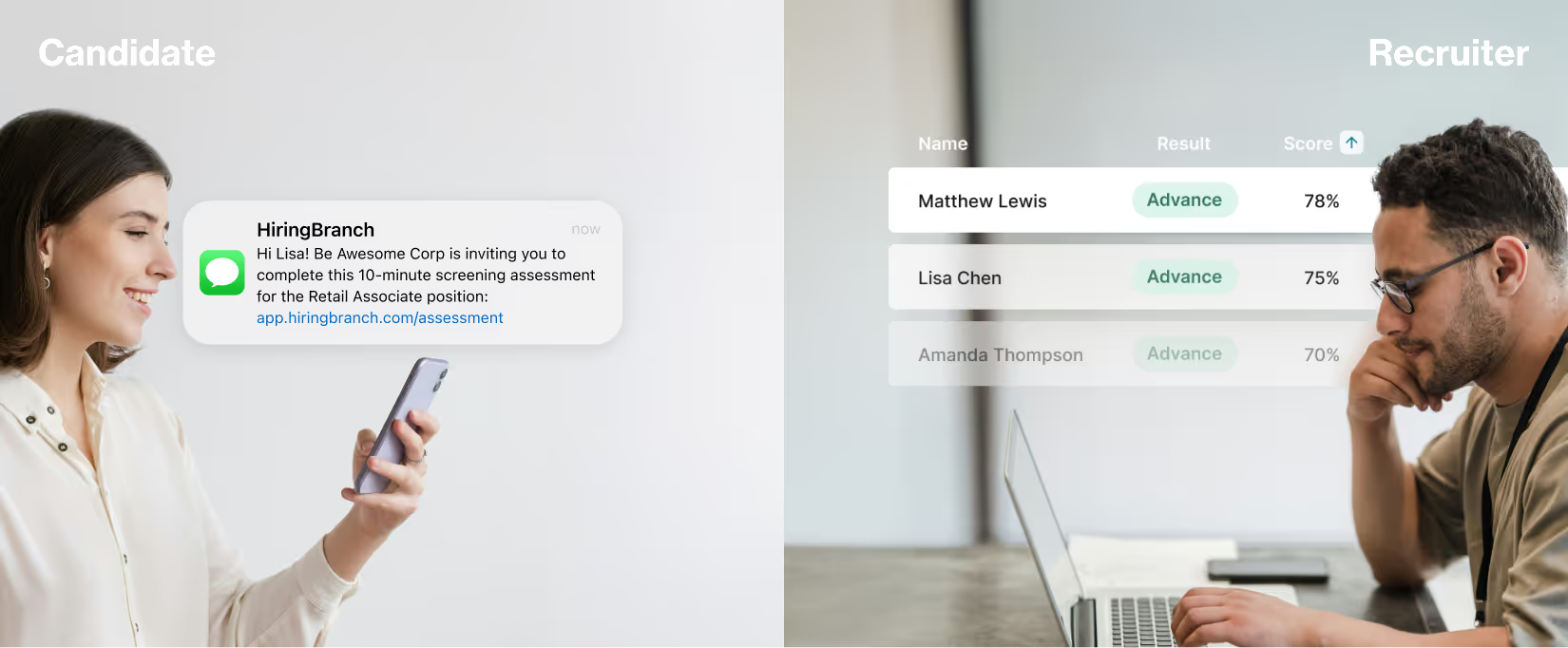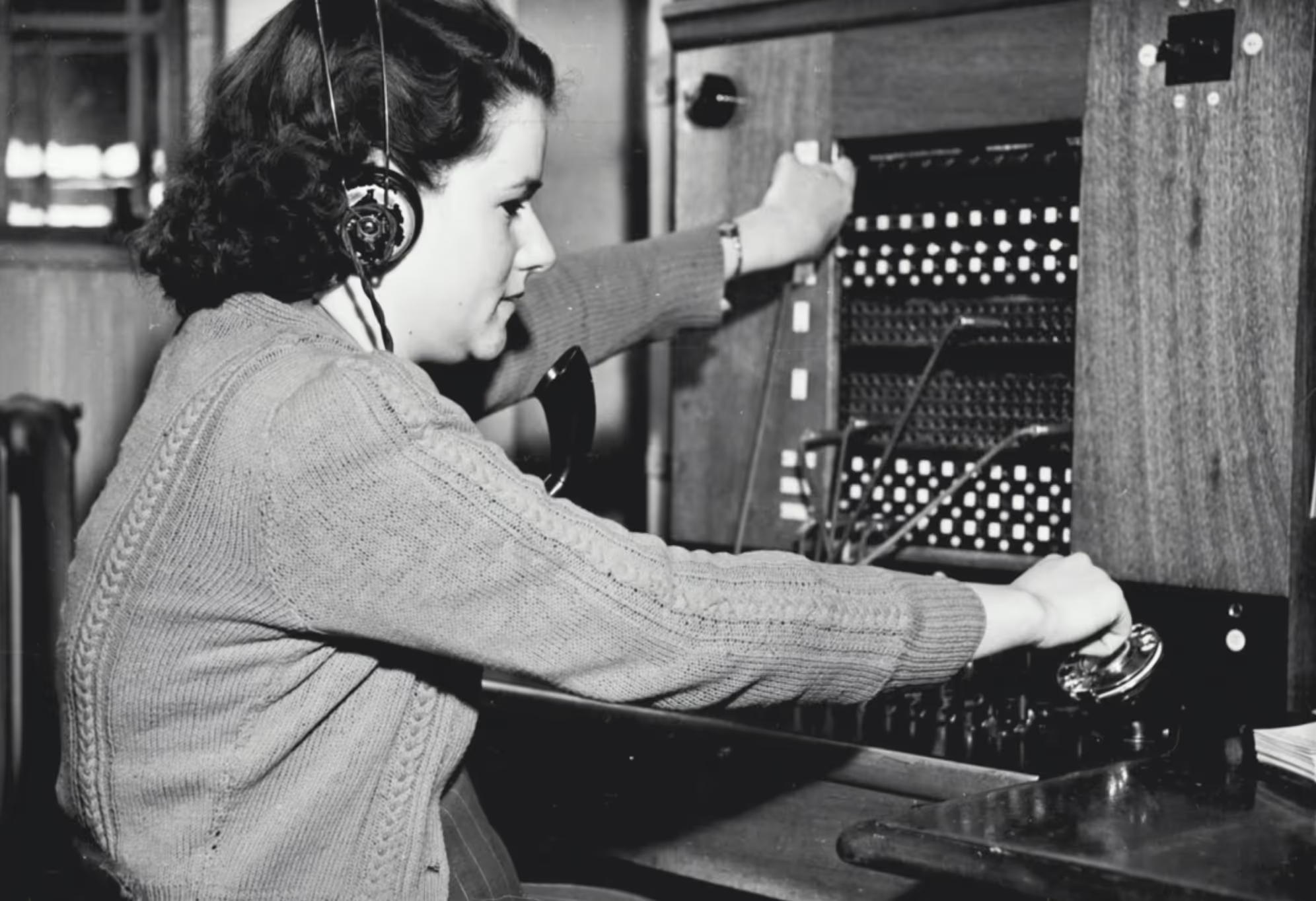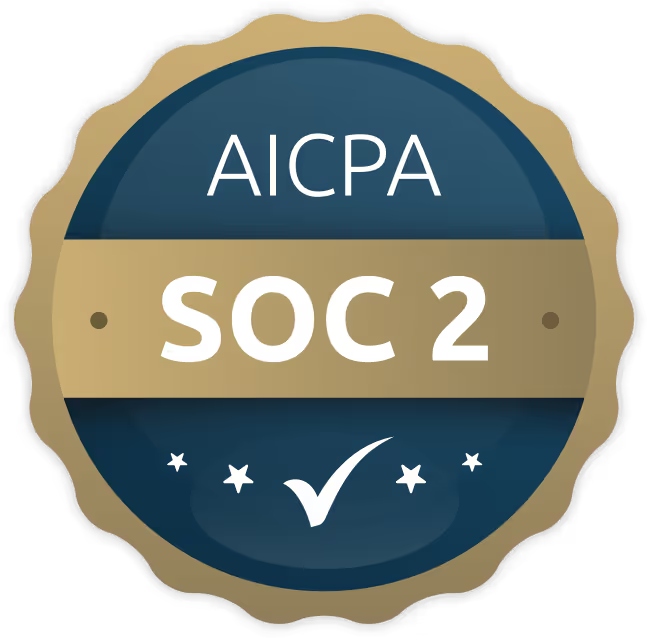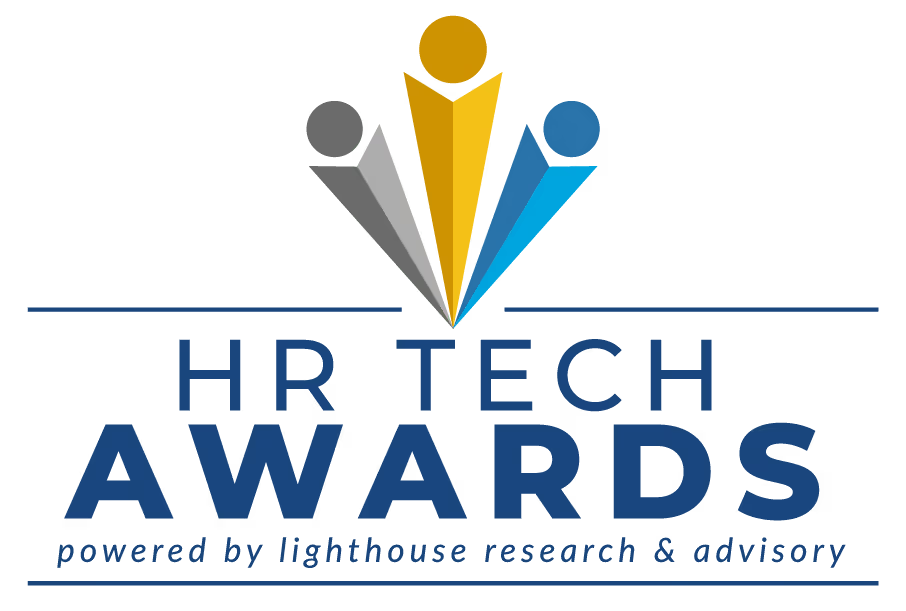
Post Updated: April 1, 2025
Recruitment is more than just filling vacancies. It’s about strategic decisions that align your workforce’s skills with business goals to drive better performance. Within an effective hiring strategy is the ability to assess new candidates efficiently to determine their suitability and potential.
An employment assessment test is a tool used during the hiring process to evaluate a candidate’s personality, skill set, or knowledge. The aim is to ensure job applicants can perform in their prospective roles. When you measure these qualities accurately, you eliminate guesswork from your hiring process—reducing bad hire rates, attrition, and cost.
In this post, you’ll learn how to leverage employment assessment testing to recruit more effectively. We’ll also discuss popular assessment types to help you choose the most effective form for your business.
How to Assess New Candidates with Employment Assessment Testing
During recruitment, candidates may be asked to complete various types of employment assessment tests. The main ones are psychometric, personality, and soft skills tests. And, as you’re about to learn, some are more helpful to hiring teams than others.
Psychometric Tests
Psychometric tests are standardized tools for measuring individuals’ mental capabilities and some behavioural traits. While the methodology behind psychometric tests is standardized (they’re designed to be objective, consistent, and scientifically validated), there are multiple types you can use to assess different attributes, including:
- Numerical reasoning. Tests the ability to interpret and analyze numerical data, like graphs, charts, and stats.
- Verbal reasoning. Measures decision-making and comprehension by evaluating how candidates interpret written or spoken information.
- Inductive reasoning. Assesses the ability to find patterns, trends, or logical connections and ultimately solve problems.
- Diagrammatic reasoning. Focuses on understanding and drawing conclusions from diagrams or visual representations (e.g., charts, graphs, etc.).
- Logical reasoning. Checks deductive reasoning and critical thinking, ensuring candidates can make sound decisions using available data.
- Error checking. Tests attention to detail by challenging candidates to find dataset mistakes or inconsistencies.

Psychometric tests may detect behavioural traits that wouldn’t otherwise be visible to a hiring manager, even through an interview process. After all, individuals may feel more comfortable answering questions in private test settings rather than face-to-face.
Although many companies use them as part of the hiring process, psychometric assessments have limitations. They generally aren’t job-specific, meaning no single test can accurately predict whether someone will excel after onboarding.
To get a clear enough picture, you’d need to know which tests are most relevant and how to conduct them fairly (requiring specialist training or support), then supplement them with other assessment methods.
Psychometric tests are also prone to bias and may disadvantage some groups because of cultural differences, language barriers, or unfamiliarity with testing formats. For example, cultural differences in how people approach problem-solving could skew results, making capable candidates appear less qualified. That lack of accuracy limits their value to hiring managers.
Here are the main advantages and disadvantages of psychometric testing in recruitment, including those mentioned above and more, so you can decide if the approach suits your business.
Pros:
- Useful for highlighting areas where candidates may benefit from personal development opportunities, supporting future growth and value for your organization
- Can predict a candidate's cultural fit with the company, aiding in long-term integration
- Indicates suitability for specific roles (ie. those prioritizing mental capability over hard and soft skills
Cons
- Can't predict job-related performance accurately as they don't assess real-world tasks
- Prone to bias (e.g., based on cultural differences)
- Requires specialist training to deliver and interpret, potentially delaying hiring decisions
- Time-consuming considering planning, set-up and analysis
Personality Assessments
Personality assessments are questionnaires designed to evaluate an individual’s traits in relation to other people. They can measure qualities like adaptability, teamwork, or emotional intelligence, although many types have different aims.
Some examples of popular workplace personality tests are the Myers-Briggs Type Indicator, the Eysenck Personality Test, and the True Colours Test (illustrated below).

As these tests and others differ in how they assess and score participants, their pros and cons can also vary.
The subjective nature of personality tests means they aren’t reliable predictors of a candidate’s ability to perform well in a role. Most hiring teams need more accurate and objective hiring assessments to streamline the selection process.
Instead, you’ll find these tests most effective when used to support development, mentoring programs, performance management, and self-awareness. For example, you could identify a new employee’s strengths and match them with a mentor who complements their personality traits.
Here are the main pros and cons of personality assessments to help you decide if they fit your needs.
Pros:
- Helps match employees with roles or projects aligning with their personality traits
- Provides a better understanding of team members' personalities so managers can build cohesive and productive teams
- Encourages individuals to recognize their strengths and areas for improvement, which can aid goal-setting and development efforts
Cons:
- Focused on traits over job-specific abilities, meaning they're less reliable for measuring practical skills
- Test results can be subjective, leading to inconsistent or unclear conclusions
- Simplified tests reduce complex personalities into broad categories and overlook candidates' unique strengths
- Candidates' emotional states and other external factors may affect performance, making data unreliable
Soft Skills Assessments
Soft skills assessments measure candidates’ interpersonal and communication abilities, such as active listening, empathy, collaboration, and problem-solving. Leveraging artificial intelligence (AI) to accurately measure less tangible qualities with minimal human intervention, they provide valuable insights you can’t get from cognitive ability tests, resumes, and interviews.
While psychometric tests focus on cognitive abilities and personality tests evaluate traits, AI soft skills assessments directly gauge how candidates respond to real-world scenarios. This means hiring teams can know with 98% accuracy which applicants will perform well before speaking with them.
In the assessment scenario below, the candidate demonstrates strong acknowledgment, rapport-building, and probing skills by responding naturally to an authentic customer inquiry.

These results (along with the rest of the assessment) would allow a hiring manager to confidently shortlist or hire the candidate for a customer-facing role—in IT support or customer service, for example.
Multinational brand Unilever reaps major rewards from predicting on-the-job performance with tech. It uses AI software to scan video interviewees’ facial expressions, body language, and word choices, then checks them against traits it considers key to relevant roles. The approach has saved the company 100,000 hours of human recruitment time.
Here are the biggest pros and cons of soft skill assessments to help you make an informed decision.
Pros:
- Can be tailored to evaluate role-specific skills, ensuring candidates are well-suited to open positions
- Proven to reduce bad hire rates and turnover, saving time and money
- AI eliminates unconscious bias from the recruitment process, allowing more objective hiring decisions
- Simulate real-world tasks to set accurate expectations and enhance candidate experience
- Automated pre-employment screening and analysis speed up high-volume hiring, freeing up recruiters' time for other tasks
Cons:
- Not all candidate assessment tools fit every organization's need (e.g., a soft skills assessment may be overkill for a company that hires just a few people per year
- Some candidates prefer not to interact with AI during the hiring process, while others don't mind
Why Traditional Methods Can’t Match Soft Skills When It Comes to Employment Assessment Testing
Formal assessments aren’t the only way to gauge a candidate’s skills. Many companies rely on other types of tests and pre-employment activities.
The issue is that these more traditional methods, while helpful in some circumstances, have major flaws that limit their effectiveness. We call them “traditional” because they’re processes that almost everyone who’s applied for a job before will have experienced.
Here are prominent examples:
- Multiple-choice tests (or job knowledge tests) force candidates to pick preset answers they may not have considered. What if an applicant bluffs their way through based on what they know from the job description? Or if regimented answers mask valuable creative skills?
- Pre-employment interviews focus on past experiences and hypothetical situations, but inconsistent questioning of candidates and unconscious bias always affect judgment. That makes for flawed data that can’t reliably inform hiring decisions—at least not in isolation.
- Role-playing activities (i.e., in-person job simulations) put candidates in unnatural and often uncomfortable positions, meaning you don’t get an accurate view of how they’d perform in a day-to-day working environment.
What’s worse, candidates don’t even enjoy traditional assessment methods:

Many companies have overcome the limitations of multiple-choice aptitude tests, interviews, and role play by using AI soft skills assessments.
These modern screening tools present candidates with real-world challenges and analyze their responses for tone, fluency, and relevance. They then provide objective scores that accurately predict on-the-job performance.

With little need for human intervention, AI assessments eliminate bias to increase data accuracy, free teams to focus on later stages of recruitment, and are effortlessly scalable for high-volume hiring.
There’s no one-size-fits-all approach to hiring because every role has its demands. Different positions require unique skill sets, so you’ll need tailored soft skill employment assessments to make fully informed hiring decisions.
For example, the task in the tailored HiringBranch assessment below invites the candidate to demonstrate acknowledgment skills (“Let them know that you understand their specific issue”).

Knowing that acknowledgment is an important skill in customer service, frontline recruitment teams could identify these skills with a tailored assessment. On the other hand, salespeople must be ready to build and maintain strong relationships with leads and know when and how to close deals. Therefore, assessments for these roles should prioritize skills like rapport-building, probing, active listening, and handling objections.
You might also benefit from assessments tailored for IT support desks, leadership roles, or industry-specific needs (e.g., retail, banking, or telecoms). Whatever your requirements, ensure the candidate assessment tool you choose fits your business goals and role demands.
Make Strategic Hires with Strategic Assessments
Your company’s performance hinges on its ability to hire the right people.
By pairing a robust recruitment strategy with effective employment assessment testing, you can reduce bad hires, improve retention, and build a team capable of consistently delivering exceptional customer experiences.
Skills assessment testing fills the many gaps left by traditional methods like role-playing and interviews, allowing you to hire efficiently at any scale. You’ll find the perfect solution for your business in our guide to the best candidate assessment tools.
Image Credits
Feature Image: Unsplash/Wes Hicks
Image 1: Via Pew Research Center
Image 2: Via WikiJob
Image 3: Via The Ohio State University
Image 4: Property of HiringBranch. Not to be reproduced without permission.
Image 5: Via Digital Spy
Image 6, 7: Property of HiringBranch. Not to be reproduced without permission.









































.jpg)

.jpg)



























.avif)



.avif)
.avif)































.webp)





.svg)
